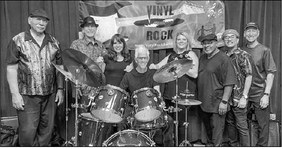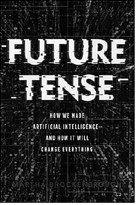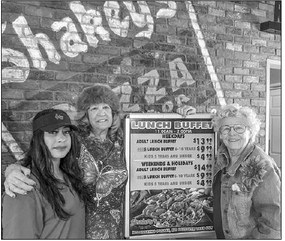LWer competes in international dragonboat championship


LWer Heidi Stone was a coach and supportive paddler in the International Dragon Boat Federation World Championships, helping lead a national team for the United States in the paradragon division. Paradragons are dragon boat paddlers with some sort of physical, neurological, sensory, developmental or intellectual impairment.
by Heidi Stone
LW contributor
I began standup paddleboarding in 2011 as a form of physical therapy for my spine after severe scoliosis surgery and hip replacements due to congenital hip dysplasia. I enjoyed it so much that paddling became a near daily routine.
I signed up for every race I could and usually podiumed for my age division, and sometimes overall female.
I started volunteering to support adaptive paddlers and surfers with various organizations all over SoCal. It’s such a joy to transfer someone from their wheelchair to a wheelchair secured to a paddleboard with side pontoons and paddle in hand, then shove them off the dock and glide them onto the water. The expression on their face the first time they realize that they can paddle independently is priceless. Several years ago, I did a training session in Encinitas to learn how to support blind surfers. One young boy had a rough time getting up, but was so determined. Finally he got up in a stance with his arms out wide and yelled, “I’m flying!” I told him that we were wrapping up since it was getting dark soon. He said, “Makes no difference to me!” So we stayed out there until sunset!
I started paddling outrigger canoe in 2017 and began focusing more on technique and endurance. I joined outrigger teams in Long Beach and Newport for six-man ocean distance racing.
I had many friends who also raced dragon boats at Mother’s Beach in Alamitos Bay. I had practiced with them a few times and it was pretty easy to pick up since the stroke was similar to outrigger. I had noticed there was an adaptive crew with deaf members on the beach one morning. Since I had been an American Sign Language (ASL) signer for over 40 years, I thought I might see if they could use some help.
After COVID, I reconnected with some deaf paddlers and got involved helping the Adaptive Fusion Dragon Boat Club in Long Beach. There are deaf, blind and physically challenged members on the team and all are very supportive of each other. With the blind, we follow alongside them in another canoe with voice commands to have them paddle certain ways and direct which way to steer with the rudder pedals. In the 20 man dragon boat, we train all paddlers, whether deaf or blind, to feel the boat in order to blend in perfect sync with each other. During practice, we also drum on the hull to mimic the beat of a drum during competition so that the blind can hear and the deaf can feel the beat to keep in time with the strokers in the front seat setting the pace.
The International Dragon Boat Federation (IDBF) World Championships are held every odd numbered year somewhere on the planet. Last fall, they decided to include a Paradragon division for the 2023 event in Pattaya, Thailand. The announcement gave a very short amount of time to come up with a national Team USA crew of adaptive paddlers from around the country.
I was asked to join as an assistant coach, along with the other coaches from the Adaptive Fusion Club. I had already been training for my own division of Women’s Senior B, which is age 50 up. I took on the responsibility to help establish the Team USA Paradragons division, and also tried out to be a support paddler on the Para team. There are categories for Para. In the first, PD1, all paddlers have impairments. In PD2 boats, half are para and half are able-bodied support paddlers. The drummer and steers-person can be either. Team USA raced in both PD1 and PD2 categories in all distances of 200, 500, 1,000 and 2,000 meters.
Lonnie Homenuk was selected as the Para head coach in January of this year and the entire leadership team hit the ground running. Our mantra was “Challenge Accepted,” and there were plenty of challenges along the way. There was little opportunity to paddle together until we all gathered together in Thailand the first of August.
I made the Team USA selection for Senior B, but the coach for the women’s crew totally understood my commitment to the Para division and listed me as an alternate. I planned to paddle exclusively with our Para team in Thailand.
There was so little time for other countries to pull together Paradragon crews, but four countries represented this year: Canada, Philippines, India and USA. Since many of the Paradragon heats were “open,” the boats could be rostered with either gender. Other countries had far more men filling their boats than we did. We had far more women trying out, so our boats were not as physically strong overall. That said, we held our own and proved to the world that Para Team USA was built with character and integrity. As Coach Lonnie always said, “AIO!” which meant, “Adapt! Improvise! Overcome!”
We didn’t win any medals, but returned home with treasured moments of a lifetime.
Jasmin, one of our Team USA captains, became blind soon after Army boot camp over a decade ago. We were both strokers (seat 1, which sets the rate for the whole boat) at the races in Sarasota, and I had asked her if she knew what the dragon head on the boats looked like. She did not. I told her that I would take her to the docked boats after the races so she could “braille” them and I’d describe what they look like and the symbolism. Unfortunately, the heads were removed and gone. While in Pattaya, many of our team visited the Ning Nooch Botanical Gardens. There was a huge statue of a dragon head similar to those on our boats. Rosie, one of her deaf teammates, attempted to verbally describe the shapes and colors as she guided Jasmin’s hands to feel all the parts of the dragon head.
Each country’s women’s crews were highly competitive, but the women of Iran proved themselves champions on a higher level. Wearing full length pants, long sleeves and hijabs, they crushed the water and earned their hardware. One of these precious women came to our Paradragons tent and asked if she could trade jerseys with me. The Iranian women were forbidden to attend our closing ceremonies, which is where a lot of jersey swapping happens between countries. I told her that I still needed to wear it the next day and would love to trade after our last heats, but said that it would be sweat-drenched. She said, “Mine, too! That’s ok! I find you!” After the exchange, she hugged me and said, “We are friends in the world.” We sure are.
The Philippine and USA Para teams have had a strong bond for years, competing against each other in Club Crew competitions. They are the most gracious, encouraging and supportive group with all types of disabilities. They had six Deaf on their national team and we had six deaf on ours. Their sign language is very similar to ASL, so communication was rather easy. All of the deaf from both teams were often gathered in our tent or theirs chatting away.
The IDBF Director of Paradragons, Nigel Bedford, had all Para teams come together in front of the grandstands congratulate each country for their participation. He made sure all the team members mixed themselves up between countries. Athletes in wheelchairs, with crutches, blind with their canes and many signing, wearing different jerseys, all together with one purpose. And to inspire other countries to participate in the future.
Denven, one of the deaf Philippine paddlers was amazed that we had a deaf steers person. He asked me how we make that work since all of a steer’s communication is with verbal commands. I told him that we were also training a Deaf drummer on our local team in Long Beach, which is unheard of.
Mary, our steer, is very skilled and experienced, but the conditions were difficult in Pattaya and she had a hard time controlling our boat with a few of our races. She was devastated, and we all encouraged her that it happens to the best and we were all in this together. On the last day, Denven came to our tent and congratulated Mary on the courageous work she did on the water and how she inspired his team. He then placed one of his gold medals around her neck.
I am currently helping coach our Adaptive Fusion Dragon Boat team prepare for Club Crew World Championships in Revena, Italy in September 2024. This is for individual local club teams from each country to compete against each other. Our team earned their berth by winning six gold medals at the Club Crew National Championships in Sarasota, Florida last July, 2023. I will also be competing with our team in Italy as a Para paddler.
Why do I do this? I was born and raised in the same salt water that my great-grandparents raised my family. In spite of my own physical challenges, I still have sight, hearing and all my limbs. I’ve been blessed with the opportunity to grow and excel in these water sports. God calls us to give back what we’ve been gifted. And by doing so, I’ve received so much more in return.
Heidi Stone (center left, fist bumping) with deaf members of the Team USA and Team Phillipines.

Heidi Stone rows a dragonboat with teammates.




